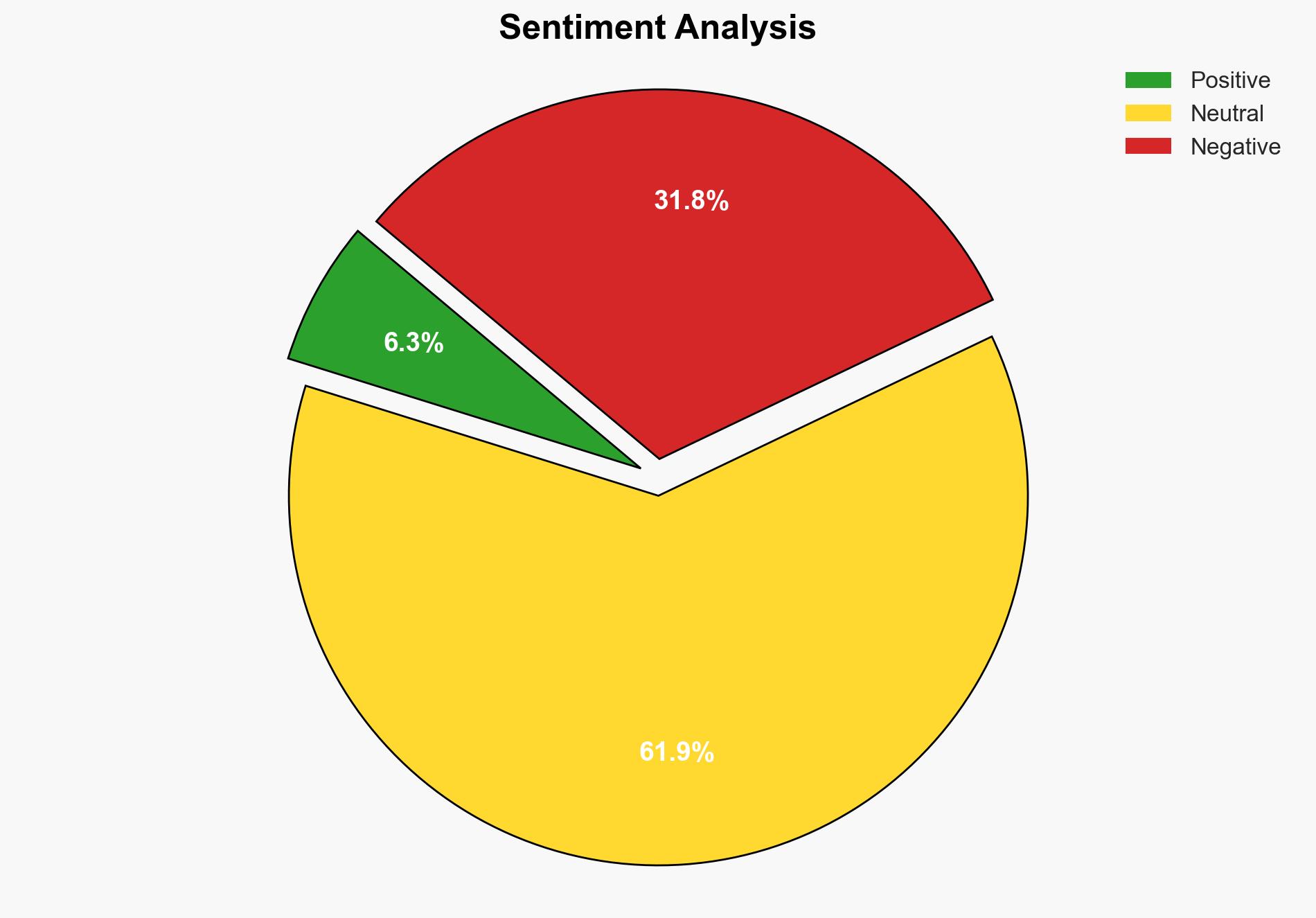‘Acted out of fear’ MP questions NSW antisemitic laws after caravan hoax – ABC News (AU)
Published on: 2025-03-12
Intelligence Report: ‘Acted out of fear’ MP questions NSW antisemitic laws after caravan hoax – ABC News (AU)
1. BLUF (Bottom Line Up Front)
The recent hoax involving a caravan filled with explosives in Dural, New South Wales, has raised significant concerns about the legislative response to antisemitic threats. The incident, initially perceived as a potential terrorist plot, led to the rapid introduction of hate speech legislation. However, it was later revealed to be a fabricated plot for criminal gain. Key findings indicate that the legislation may have been enacted under misinformed circumstances, raising questions about the decision-making process and the potential for future misuse of such laws.
2. Detailed Analysis
The following structured analytic techniques have been applied for this analysis:
General Analysis
The caravan incident in Dural, initially thought to be a terrorist act, was later identified as a hoax orchestrated for personal gain. This revelation has prompted scrutiny over the New South Wales Parliament’s swift legislative response, which introduced laws to combat hate speech and antisemitic attacks. The legislation, perceived as a reaction to a spate of antisemitic incidents, was enacted without full understanding of the hoax’s nature. The decision-making process was influenced by fear and misinformation, leading to potential overreach in legislative measures.
3. Implications and Strategic Risks
The rushed enactment of hate speech legislation poses several risks. There is a potential for misuse of these laws, which could infringe on civil liberties and lead to unjust prosecutions. The incident highlights the need for careful evaluation of intelligence before legislative action. Additionally, the revelation of the hoax undermines public trust in government responses to security threats, potentially affecting regional stability and social cohesion. The incident also emphasizes the importance of accurate intelligence dissemination to prevent similar occurrences in the future.
4. Recommendations and Outlook
Recommendations:
- Conduct a thorough review of the legislative process to ensure decisions are based on accurate intelligence.
- Enhance communication channels between law enforcement and government to prevent misinformation.
- Implement training programs for parliamentarians on evaluating security threats and legislative responses.
Outlook:
In the best-case scenario, the review of the legislative process leads to more informed decision-making and improved public trust. In the worst-case scenario, continued misinformation could result in further legislative overreach and public dissent. The most likely outcome is a balanced approach where lessons learned from this incident guide future legislative actions, with increased scrutiny on intelligence assessments.
5. Key Individuals and Entities
The report mentions significant individuals such as Anthony Albanese, Rod Roberts, Chris Minns, Yasmin Catley, and David Hudson. Their roles in the incident and subsequent legislative actions are crucial to understanding the broader implications of the event.





